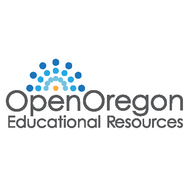
(View Complete Item Description)
These materials were designed as part of the Equity and Open Education Faculty Cohort in the Summer of 2020.
The materials are for IRW 90 -- Foundations of College Reading and Composition
This document contains three parts:
1. My Implementation Goals
2. Open Access Textbooks used in the course
The Word on College Reading and Writing
1,2,3 Write!
3. IRW 90 Course Calendar (Weeks 1-2) incorporating the open access textbooks with links to related activities and assignments.
IRW 90 Foundations of College Reading and Composition
Course Description
Covers reading and writing processes, topic development, and revision for clarity. Focuses on developing flexible strategies for reading and writing, and producing clear and coherent paragraphs and essays. Emphasizes strategies for comprehension and metacognition, critical reading and thinking skills, intellectual curiosity, vocabulary development, and writing conventions.
Intended Outcomes for the course
Upon completion of the course students should be able to:
Read to understand main ideas, supporting details, and a writer’s purpose in a variety of texts.
Use composing and reading strategies for comprehension.
Use reading strategies to write coherent texts that develop ideas in support of a central idea.
Use writing conventions (content, form, format) to communicate the writer’s ideas.
Use strategies to enhance and diversify knowledge of vocabulary.
Follow a process to access information in textbooks and other reference texts.
Use flexible strategies for pre-reading, reading, reviewing, rereading, correcting comprehension, drafting, revising, and editing.
Material Type:
Unit of Study
Author:
Della Abrahams




















